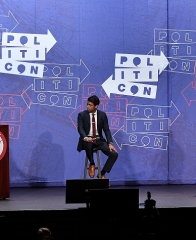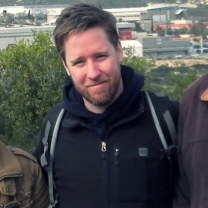 / On Political Violence
Subscribe
/ On Political Violence
Subscribe

On June 14, 2017, James Hodgkinson, an Illinois supporter of Bernie Sanders with a history of domestic violence, shot four people during a Republican congressional baseball practice in Alexandria, Virginia. Of the victims, Louisiana congressman Steve Scalise, the current House of Representatives majority whip, and Matt Mika, a Tyson Foods lobbyist, were the most seriously injured. Both survived. Hodgkinson was killed in the ensuing shootout with police. Prompted by this event, political reporter T.A. Frank wrote an article for Vanity Fair's The Hive in which he lamented the increased tribalism, the intractable commitment to one’s own social group, on the right and left alike, Frank exhorts Americans to come together by "learning to live with what you hate, like guns or abortion, even if it means compromising on things that will never, in our souls, allow for compromise." In other words, go along to get along.
I am not known for combative tribalism. With my racially, economically, and geographically diverse family and friends, as well as my penchant for international travel, I am the epitome of what Steve Bannon would call a "globalist cuck."(Of course, I’m also black and, despite questions about whether there is evidence that he has used the n-word, I’m sure Bannon would have only one name for me. Globalist cuck is not it.) The term cuck, short for cuckold-conservative, questions its target’s conservative bona fides by equating conservatism with masculinity. In Bannon’s world, a globalist is an enemy of “America First” extreme nationalism, and he is not a real man.
I am indeed a globalist. I have long held that differences in customs, beliefs, practices, and economic prosperity should be celebrated and shared—across national borders. But I am increasingly convinced that this only works when everyone in a community is on board. When there are some who do not wish to share in others’ differences, then those people have opted out of community. This does not mean that those who do champion tolerance are tribalists.
Let’s say someone—I will call her Sally—chooses to leave the temple of Mammon (or Wall Street) for an off-the-grid commune in which she grows her own food and spurns capitalism. Then she is indeed no longer a member of the community that worships money. Sally no longer shares the values that made her part of that group. She is, of course, free to invite her former compatriots to join her new group. In fact, Sally’s former membership may even make her a more effective evangelist. At the same time, her former compatriots are free to invite her to come back to the fold. But let me be clear: this would be an invitation across the border.
The nationalist ideology of "America First" is like Sally’s situation. The approach necessarily creates a border between those who embrace it and those who reject it. One could argue that being tolerant requires accepting the non-tolerance of others, but this is a logical fallacy. To accept the intolerance of difference is tantamount to being intolerant. To argue that the tolerant person—she who would uphold everyone's right to, say, free speech—must accept another's intolerance is to doubly bind the celebrant of diversity.
If you speak against intolerance, you are being intolerant of its perpetrator. If you accept an intolerant person's point of view as valid and thus one worth engaging, you embrace her intolerance—no matter how much you evenhandedly protest that you disagree. What then is the "progressive" to do? If the objective is to eradicate intolerance, accepting difference in the form of intolerance is not acceptable, not logical. The advice that we ought to "learn to live with what we hate" fails to recognize this dilemma. Because when what we hate is some people's hatred toward others—whether in the form of the religious intolerance that led to the Muslim Ban, the racism that has given new visibility to white supremacy, or the classism that informs the GOP’s desperation to repeal the Affordable Care Act—continuing to rage against is the only hope we have to be as tolerant as possible.
As long as one side imagines itself a tribe, then all sides must imagine themselves tribes—and defend their borders vigorously. My advice for the left? It’s time to defend our borders and deliberately expand our territory, whatever that may mean for tribalism, or for the United in the United States of America.
Cord J. Whitaker teaches and writes on medieval English literature and the history of race at Wellesley College. In addition to co-directing The Spoke, he blogs at In the Middle and, along with his students, at What Is Racial Difference?
Photo Credit: "Barrel of a gun threatens the world globe," via Shutterstock, 5 July 2017.








